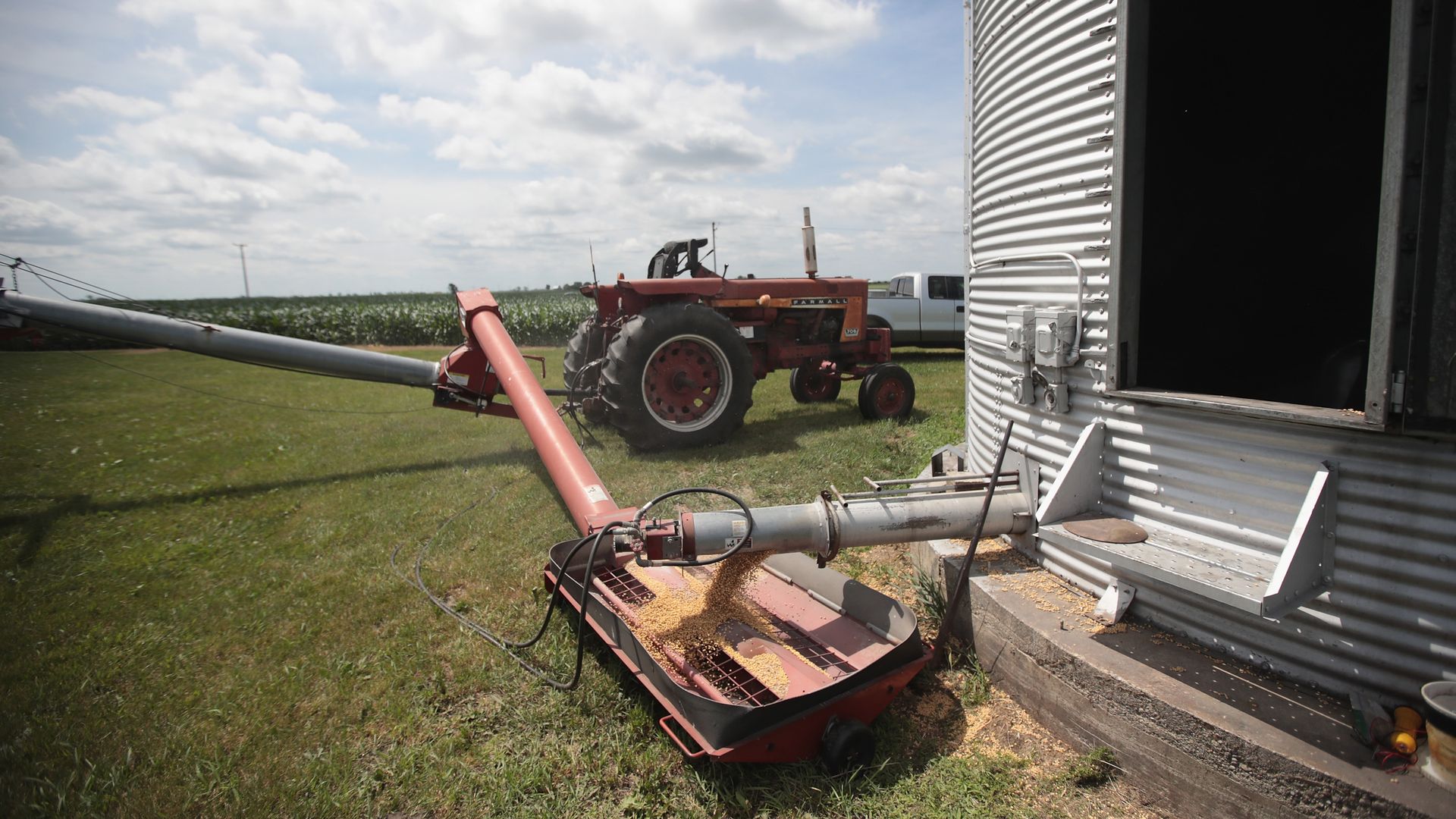May 11, 2019 - Economy
Farmers across the Midwest struggle to cope with Trump's trade war
Add Axios as your preferred source to
see more of our stories on Google.

An Illinois farmer loads soybeans from his grain bin onto a truck before taking them to a grain elevator. Photo: Scott Olson/Getty Images
